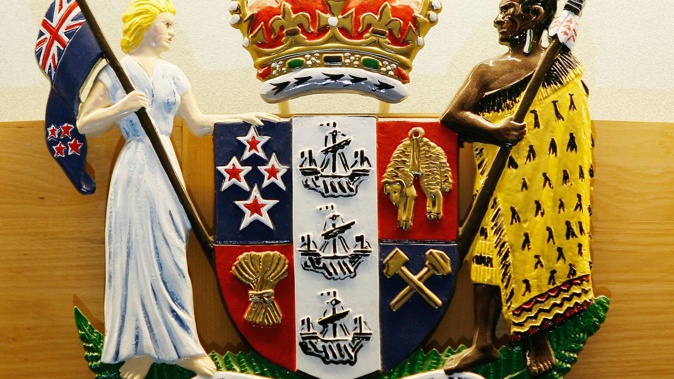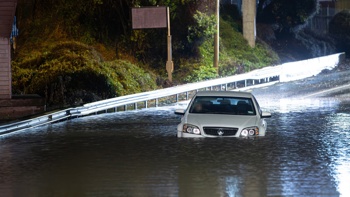
A woman who had her passport cancelled because it was believed she planned to facilitate a terrorist act for the Islamic State of Iraq and the Levant has had her application for a judicial review denied.
The woman, who has permanent name suppression, applied for a review after her passport was suspended and then cancelled in 2016 and the High Court has today released the decision of Justice Dobson.
On April 19, 2016, the Acting Minister of Internal Affairs suspended the woman's passport for 10 working days because a report was being prepared about possible cancellation of her passport and it was believed she would leave New Zealand before it was finished.
On May 2, the Minister of Internal Affairs, then Peter Dunne, decided to cancel the woman's passport using the section of the Passports Act 1992 which allows cancellation if the minister believes on reasonable grounds that the person is a danger to the security of a country other than New Zealand because the person intends to facilitate a terrorist act.
Dunne informed the woman his decision was based on information provided by the New Zealand Security Intelligence Service, most of which was classified.
"I believe on reasonable grounds that you have been involved in activities of security concern. Specifically that: you previously attempted to travel to Syria to join the Islamic
State of Iraq and the Levant (ISIL) in August 2015; and you intend to engage in, or facilitate, an act of terrorism overseas ... Specifically, that you maintain an intention to travel to Syria to join the Islamic State of Iraq and the Levant.
"I therefore believe on reasonable grounds that you are a person who is a danger to the security of another country because you intend to engage in, or facilitate, a terrorist act overseas (within the meaning of Section 5 of the Terrorism Suppression Act 2002), that the danger to security of that country cannot be effectively averted by other means, and that the cancellation will prevent or effectively impede your ability to engage in or facilitate a terrorist act," Dunne's notice said.
The court heard there were a series of factual matters included in the classified security information which Dunne relied on in making his decision.
Those included the NZSIS assessment she tried to go to Syria to join ISIL in August 2015 but was detained by Turkish authorities at the boarded on suspicion of attempting to enter Syria to marry an ISIL fighter and support the group.
She was reportedly travelling in a minivan of people of various nationalities who were believed to be ISIL supporters.
She was detained and interviewed before being deported from Turkey and had tickets to return to Australia, where she was a citizen, on September 4, 2015.
Instead of going to Australia she changed flights in Kuala Lumpur, changed her appearance and travelled around the Middle East for several weeks.
"It appears you were not allowed into some of the countries you travelled to. Your brother eventually met you in Qatar and you travelled to Oman and then on to New Zealand, arriving on 21 September 2015. You advised New Zealand Customs on your arrival that you had no intention to go to Syria, but were trying to visit family members in a refugee camp in Turkey."
The NZSIS said others believed she had been planning to go and live under ISIL for some time, that she had been accessing ISIL propaganda, and that she had referred to marriage which they interpreted to mean she intended to marry an ISIL fighter.
The NZSIS also assessed she was likely responsible for online material that included pro-ISIL content, had translated and disseminated pro-ISIL video material, and shared information online supporting the extremist group.
They said that indicated her support for ISIL, ability to facilitate a terrorist attack through dissemination of propaganda and ability to "share information that ISIL supporters could use as inspiration to travel to Syria and/or Iraq or to conduct domestic attacks in their own countries".
In October 2015, the woman and her brother travelled to Indonesia but were interviewed, detained and deported back to New Zealand.
When her passport was suspended, she travelled from New Zealand to Australia relying on her Australian citizenship to gain entry.
"NZSIS assessed that you maintained an intention to travel to Syria to join ISIL based on your previous travel attempt and the information set out above, together with other classified information indicating you still wanted to travel to Syria."
During her application for judicial review, the woman argued that the decision to cancel her passport was void because she reported it lost on April 22, 2016 and Customs had recorded it as invalid which meant there was nothing to cancel.
The Crown argued the document still had sufficient status to be the basis for a replacement if an application was made for a new passport until the cancellation was ordered by the Minister.
Dobson ruled that argue was "untenable and has not been made out".
The woman's lawyer also pursued a wide range of grounds for challenging the lawfulness of the cancellation based on classified information which neither the woman nor the public were privy to because of national security concerns.
Dobson again ruled none of them were made out so the application for judicial review was dismissed.
He pointed out it was fundamental that the decision be "assessed in light of the context that applied in April and May 2016".
"It is not a decision that could be justified now, and there would likely be difficulty justifying it from about December 2017 when the Minister accepted that [the woman] could apply for a further passport. She has been free to do so since that time but has not done so."
Dobson agreed to permanent name suppression because "an extraordinary extent of prejudice would result to [the woman] if her current life was disrupted by the attention likely to follow from her being identified".
"It is clearly apparent that the report to the Minister and circumstances in which the cancellation decision was made were very much a reflection of concerns shared in New Zealand and other similar jurisdictions at the time. Relatively soon after the events relevant to the Minister's decision, the world had moved on," he said.
Take your Radio, Podcasts and Music with you









